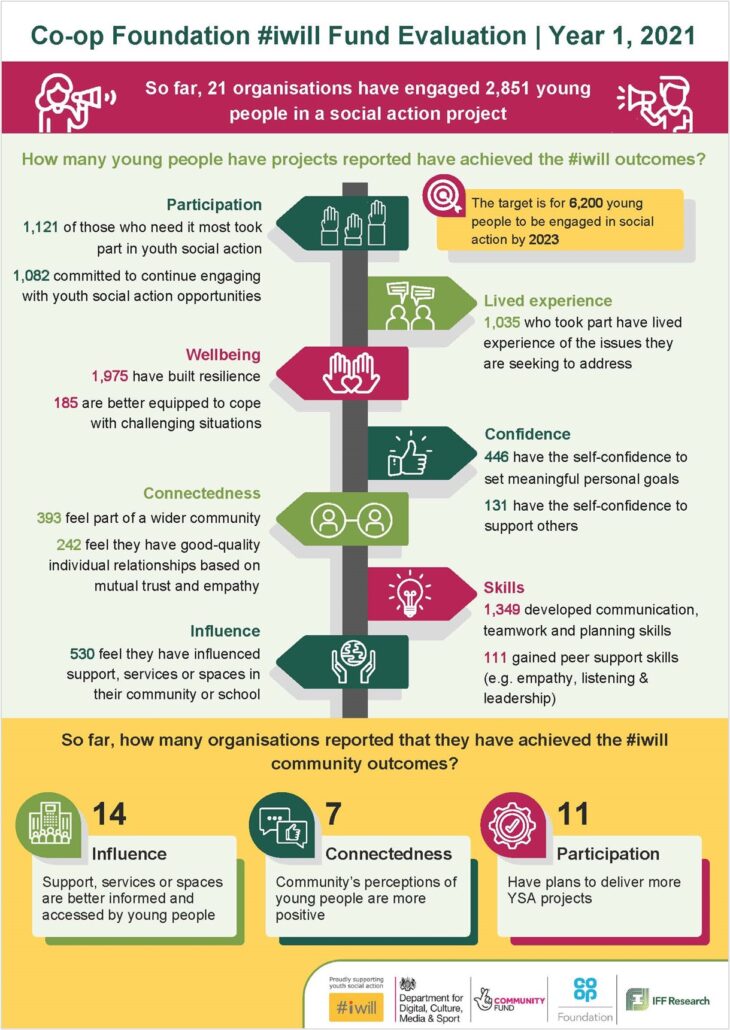
IFF were delighted to work with the Co-op Foundation to help them evaluate the impact of the first six months of their #iwill Fund.
About #iwill
#iwill is a national campaign to promote social action among young people, set up by the Department for Digital, Culture, Media and Sport (DCMS) and the National Lottery Community Fund. The Co-op Foundation is one of several organisations that have committed to matching a portion of the #iwill Fund to distribute among youth social action projects.
The #iwill fund is now in its’ second round of funding after working with 59 projects to tackle youth loneliness through social action between 2018 and 2021.
The most recent round of #iwill funding aims to support 76 youth social action projects through its lifecycle. These will help young people to:
- Work together to improve the design and use of community spaces
- Run peer support projects to help young people’s wellbeing as they move up to secondary school
- Provide peer support and safe spaces for young people who are going through bereavement
Projects were launched in 2018 and will run to the end of 2023.
Our key learnings so far
Learning 1: There are real benefits to social action
The target is for 6,200 young people to be engaged in social action by 2023. So far, 21 organisations have engaged 2,851 young people in social action.
1121 young people who needed it most took part in social action, and 1082 committed to continue engaging with youth social action opportunities.
The results of this benefits both communities and those taking part – 1975 young people have built resilience as a direct result of #iwill funded projects, while 1349 have developed communication, team-work and planning skills.
Finally, 1035 people who took part have lived experience of the issues projects are seeking to address.
Learning 2: Co-operation counts
We have collected feedback on how to use different channels to reach target young people, including digital spaces and school referrals. Learning from the pandemic, a blended approach of online and face-to-face may also help widen participation to more geographically dispersed young people. Having young people involved in every stage of the process allows them to take ownership of projects and become invested in their outcomes.
Recruiting staff with backgrounds and experience most relevant to the target young people and the topics being covered is integral to delivering projects well. Being flexible is important: doing things like adapting delivery to different learning styles and sharing lesson plans in advance means that young people may learn more effectively.
Learning 3: Supporting partners to deliver
We have learnt a lot about what Co-op Foundation funded projects are doing and their achievements. Much was said about leveraging existing relationships and networks and minimising burden on any partner organisations by considering timing and the best way to work. Safeguarding training is important, as is supporting staff around sensitive issues. These are recommendations made to Coop Foundation as they continue to develop as a funder.
The infographic below summarises how projects have progressed against the outcomes so far.

Next steps
As Co-op Foundation move on to the next stage of #iwill, there is already much to be learnt from this project. We are looking forward to continuing the second stage of the evaluation into the new year, starting with speaking in depth to the second half of grant-holder projects.
Read our full #iwill interim learning report